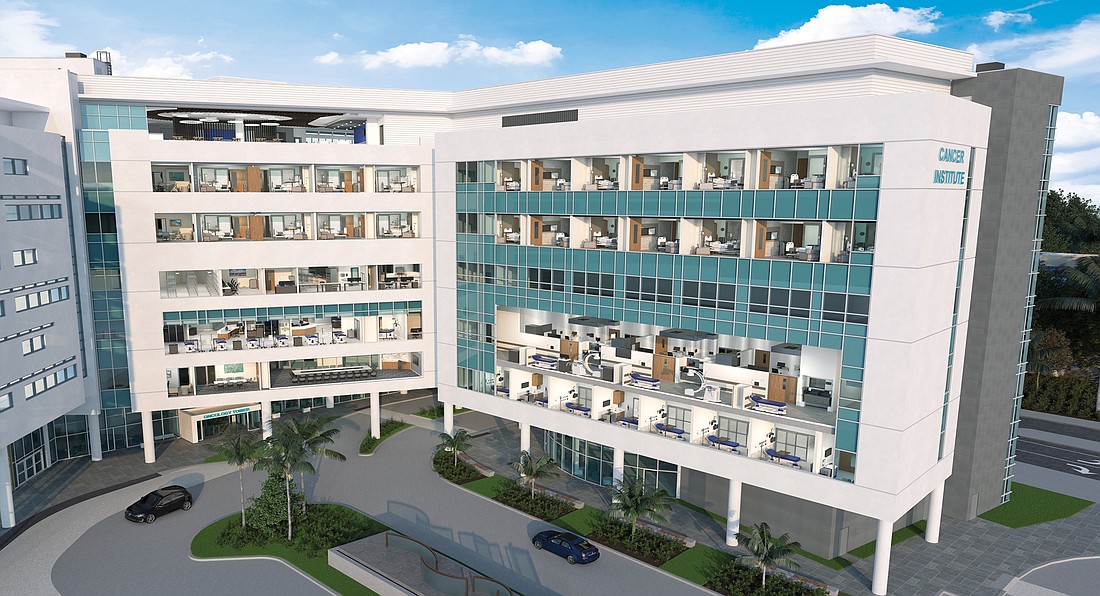- May 15, 2025
-
-
Loading

Loading

The Sarasota area is growing. And Sarasota Memorial Hospital’s Cancer Institute is growing with it.
SMH is constructing two major additions to its cancer center, which will provide patients with a more complete spectrum of cancer care close to home. But the expansion is about much bigger than walls and machines; it also includes the addition of more physicians and support systems.
“When you look at what cancer patients look for in their care, it’s really two things,” Cancer Institute Director Kelly Batista said. “They want a physician and a physician team that specializes in their cancer. And then they want their care all under one roof.”
The most obvious changes will be the two new buildings: a radiation oncology center on the North Sarasota campus, which will open to treat patients with its linear accelerators in August 2020, and an eight-story oncology tower on the main campus, which will become “the heart” of the SMH Cancer Institute, according to the SMH website, when it opens in November 2021.
SMH already offers internal radiation therapy, which implants radioactive seeds into the site of a tumor and is typically used when the cancer has not spread to other areas. But the radiation oncology center will allow SMH to offer radiation beam therapy for the first time. Radiation beam therapy involves using linear accelerators to conform a radiation beam as tightly as possible to the site of the tumor. It can be used if cancer spreads to other parts of the body.
Meanwhile, the oncology tower will ensure the inpatient needs of a growing population, such as visiting with specialists and receiving care from nurses, can be met under one physical roof.
“They can have a longer length of stay than some of our other patient populations,” Batista said. “It’s very important to have not only a dedicated area but one that’s in a calming, welcoming environment.”
But adding staff members and developing a method for them to work more cohesively are just as important, if not more so, than the buildings themselves. That’s where the creation of multidisciplinary teams comes into play. A multidisciplinary team consists of experts within a certain specialty (breast cancer, for example) that possesses different subspecialties. These include surgeons, medical and radiation oncologists, radiologists, specialty nurses, researchers, genetic counselors and rehab therapists.
“Patients have access to [these specialists] today,” Batista said. “But what they didn’t have before was having all of them come together to review their case. Those teams are developing protocols, pathways, using evidence-based guidelines and being consistent in the care that they provide.”
Another aspect of creating more comprehensive treatment plans for patients is integrative medicine, which is the combination of conventional medicine with complementary medicine. SMH already offers some of these services, such as cancer-specific rehabilitation, counseling services, genetic services and patient navigation. The hospital is also expanding or exploring into fields including touch therapy, such as massage and acupuncture, and nutrition services, such as cooking classes.
“Integrative medicine is different in that it’s saying this is not separate from your conventional care plan that you would think of — your surgery, chemotherapy, radiation,” Batista said. “The idea is that we bring them together, and by having that be part of a more holistic cancer plan for the patient, they’ll actually have better outcomes, better survival. But they’ll also feel better.”
These facilities and services will give Sarasota-area patients more options than ever before when it comes to fighting cancer.